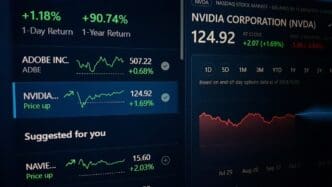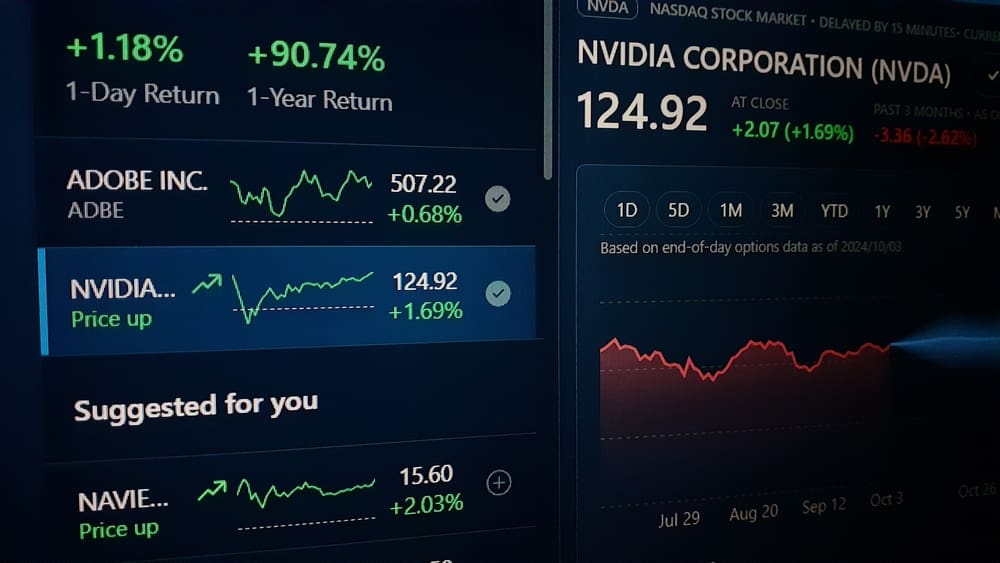Nvidia’s stock took a significant hit on Wednesday, dropping over 5% following a report that new Chinese environmental regulations could impact the company’s sales in China. This decline happened amidst a wider sell-off in technology stocks, spurred by concerns over a worsening trade conflict.
The Financial Times reported that Chinese regulators are urging companies to use data center chips that comply with stringent environmental standards, which reportedly do not include Nvidia’s H20 chip. This processor was designed to align with U.S. export controls for the Chinese market.
In response to these developments, a spokesperson for Nvidia stated, “Our products provide superb energy efficiency and value in every market we serve. As technology moves rapidly, export control policy should be adjusted to allow U.S. firms to offer the most energy-efficient products possible, while still achieving the Administration’s national security goals.”
This situation arises amid intensifying trade tensions between Washington and Beijing, a relationship further strained by the U.S.’s imposition of additional tariffs on Chinese goods since President Donald Trump took office. The export restrictions on advanced semiconductor technologies remain a contentious issue between the two powers.
On the same day, TD Cowen analysts reported that Microsoft had canceled new data center projects in the U.S. and Europe, contributing to investor anxiety that major tech companies might reduce their spending on artificial intelligence. However, the analysts noted a silver lining: Google is stepping in to fill the capacity that Microsoft abandoned in international markets, while Meta is expected to do the same in the U.S.
Earlier, a TD Cowen note from February highlighted Microsoft’s cancellation of several data center leases. Nvidia’s shares were among the “Magnificent Seven” stocks that suffered declines, interrupting a recent recovery in the sector after the S&P 500 and Nasdaq entered correction territory earlier this month.
The broader tech market has faced challenges this year as investors assess the impact of the Trump administration’s tariff policies. Concerns about overvaluation in the AI sector led to a drop in Nvidia’s stock in late January after a Chinese startup, DeepSeek, launched a chatbot with reportedly lesser resources than its American competitors.
Renewed apprehensions about an overstretched AI market reemerged earlier this month after Marvell Technology’s revenue outlook fell short of expectations, negatively impacting semiconductor stocks. Overall, Nvidia’s stock has decreased by approximately 15% this year.
Your World Now
- Impact on Product Availability: Chinese regulations might limit the availability of Nvidia’s H20 chip in the market, affecting both manufacturers and consumers who rely on these technologies.
- Trade Tensions and Economic Outlook: The ongoing trade disputes between the U.S. and China could lead to further economic instability, impacting global markets and possibly leading to increased costs for goods and services.
- Investment Decisions in Tech: Investors may become more cautious about investing in tech stocks due to potential regulatory changes and geopolitical tensions, which could influence market trends and personal investment strategies.
- Data Center Development: Microsoft’s decision to cancel data center projects could open opportunities for other companies like Google and Meta, potentially affecting the competitive landscape of data center services.
- Emerging AI Market Dynamics: Concerns over AI market valuations could lead to shifts in how companies approach AI development, potentially affecting innovation and the pace of technological advancements that consumers experience.







